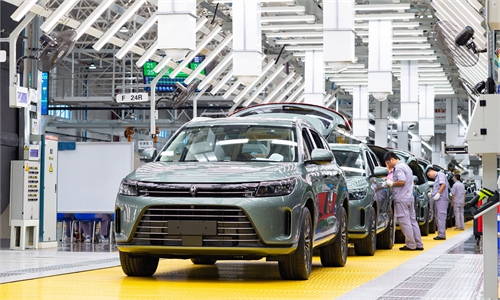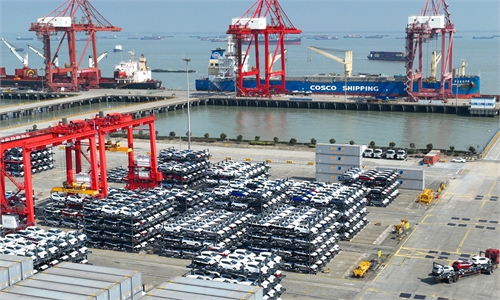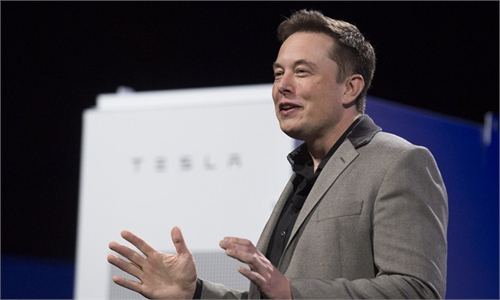
Illustration: Tang Tengfei/Global Times
Miao Wei, former minister of the Ministry of Industry and Information Technology, called on China, as Europe and the US are stepping up efforts to develop local electric vehicles (EV) battery industry and protectionism has resurfaced, to lead in setting global EV battery standards to maintain an edge in the fast-growing industry, Reuters reported.As an emerging industry which has developed rapidly in recent years, many important technical standards still remain blank. For example, China currently has as many as 145 types of batteries on the market. It is important to develop new standards and update outdated standards for the industry as soon as possible. With a leading advantage in this field, China should lead the formation of new world standards. The non-economic interventions of Western countries cannot stop China from taking this important step.
China's EV batteries and related industries have already achieved meaningful breakthroughs and have broken through many outdated industry standards. Promoting the formation of EV battery specification and size standards will help realize large-scale automated production, greatly reduce production costs, and promote the efficient and rapid development of the industry.
China now dominates the supply of EV batteries. In 2022, 63 percent of the EV batteries were produced by Chinese companies. Last year, China supplied 70 percent of the world's lithium, 70 percent of cathode materials and 90 percent of battery anode materials. In addition, BYD has surpassed foreign brands to become the world's second largest EV battery supplier.
As for whether China's EVs can enter the US market, while raising concerns about factors such as intensified China-US geopolitical tensions, VOA on Monday admitted that it is only a matter of time for Chinese EVs, with a tangible price advantage, to enter the US market.
Faced with the rapid rise of China's EV industry, Western countries are adopting protectionist measures instead of promoting cooperation. The US government has rolled out incentives for automakers to produce both batteries and EVs in the US or in key trading partners. Many politicians in the West are calling for "reducing over-reliance on China."
Since many of the current international standards were basically formulated by Western developed countries, some people in the West always look at industrial development and standardization issues from a political perspective, thinking that the access and industrial technical standards are areas of competition among powers. There have been many voices in the West calling on the EU and the US to jointly boycott the adoption of China's industrial technology standards around the world.
Industrial technology standards establishment should be led by countries that are leading in the development of this industry. China has the ability and need to take a step forward in the field of battery standards. China should lead formation of global EV battery standards, not only to take a step to update China's domestic standards, but also to promote the internationalization of Chinese standards.
In fact, China is developing rapidly in the field of standardization, not only in the field of EVs. In fields like 5G, high-speed rail, and many other categories of infrastructure, Chinese standards have already gone global.
In some specific equipment and technical fields, China has its own standards, which conflict with international standards, because the original international standards are outdated, not applicable to the current industry development. It is necessary to replace those old standards that restrict industrial development with new standards that will promote industrial development.
It should be pointed out that politicization and protectionist practices cannot stop Chinese standards from going global. Only by stop politicizing economic issues and jointly promoting the progress of industrial standards can Western countries boost their own industries.
In the late 1990s, 70 percent of the technical standards implemented in China were standards of international organizations. This proportion has dropped significantly in recent years. With the continuous development of Chinese industries, more Chinese standards are internationalized, which is the inevitable result of development.
It is time for the West to abandon geopolitical thinking and non-economic means to prevent Chinese standards from going global. Companies in Western countries have fallen behind in the fields of EVs and 5G over the years. It is only a matter of time before Chinese standards go global.
The author is a reporter with the Global Times. bizopinion@globaltimes.com.cn



